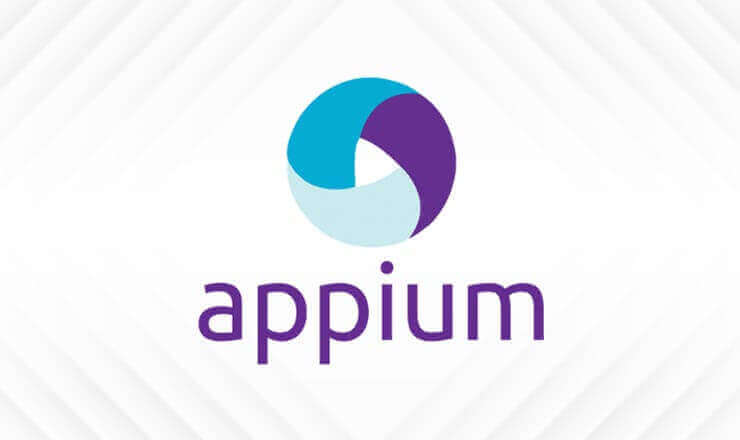Our Mobile Developer course, designed for those with a front-end and back-end background, focuses on teaching React Native, enabling rapid mobile app development. The curriculum covers fully learning React and React Native, API integration, UI development, security/checking, and methods of use.
Course Content
We have an alternative option for our students who have Front-end knowledge. Our specific Mobile developer course, where we only teach React Native, is perfect for those who want to reach their goal of becoming a Mobile developer as soon as possible.
Our admission requirement for this unique series of lessons, in which we offer React Native-oriented content, is to have a front-end and back-end background. Students who meet this requirement can step into Mobile development by learning the tools to become mobile developers quickly.
Here are the vital elements that a mobile developer should master in the work process:
Front-end Development with React (and React Native): The mobile developer uses React, a popular JavaScript library for building user connections, for front-end development. React enables the creation of interactive UI elements that can be used again. With React, developers can build web-based connections for mobile applications that can be joined through a browser. Also, when Native-like mobile applications are needed, React Native, an extension of React, is used. React Native allows the development of mobile applications for iOS and Android platforms using a single code base.
API Integration: A mobile developer integrates APIs (Application Programming Interfaces) to offer a link between the user-facing section of the application (the front end) and the server-side section (the back end).
User Interface Development: Full-stack mobile developers who are specialists in React or React Native for front-end development focus on creating user screens that are interactive and have visual appeal. They use React's component-based architecture to build UI elements that can be reused throughout the application. Using React Native, they design mobile app screens with a native-like appearance, which perform well, and offer a smooth user experience on different platforms.
Security and Authentication: Mobile developers include security measures and authentication elements to keep the mobile application and its data safe. They handle user authentication, authorization, encryption, and secure data transfer between the front-end and back-end elements. They ensure the system is suitable to meet proper security practices to protect user information and help to reduce common weaknesses.
Deployment and DevOps: Mobile developers can create feature-rich mobile applications using React Native for front-end development.
Job Title Targets
- - Mobile Developer
- - Android Developer
- - IOS Developer
Courses Curriculum
React Native
React Native is an open-source system developed by Facebook for building native mobile applications using JavaScript and React, a popular JavaScript library for building user connections. It allows developers to create mobile apps that run on both iOS and Android platforms, sharing a important amount of code between the two. Combining your back-end and front-end skills allows you to start working as a mobile developer within months after the thorough React Native training that TechPro Education offers.
Mobile Project
At the end of the course, you will have the chance to use what you've learned in real-world projects. By copying the mobile development business environment for you in these projects, we hope to better prepare you for the professional world you will soon enter.
Use
Use is inevitable for the applications you develop to be used in real life. Otherwise, all your efforts will be wasted. With the deployment training in use that we offer in your lessons, you will gain the ability to quickly transfer all the mobile applications you have developed to Android and IoS environments.
FAQ
What are the different types of mobile development?
There are two main types of mobile development: native development and cross-platform development. Native development means creating a separate app for each platform to fully use its features. Cross-platform development involves building a single app for several platforms, but it may be challenging to use platform-specific features.
What is cross-platform mobile development?
Cross-platform mobile development allows developers to create applications with a single code base for different platforms, such as Android and iOS. In this process, a cross-platform development system is used, ensuring that the code written can run on different platforms.
What are the benefits of cross-platform mobile development?
Cross-platform mobile development provides several benefits:
Reduced development costs: Cross-platform development systems get rid of the need to develop unique applications for each platform, resulting in cost savings.
Increased development speed: Cross-platform systems speed up the development process by providing a joint code base that can be used again across platforms.
Improved user experience: Cross-platform applications offer an improved user experience because they are compatible with several platforms.
What are the most popular cross-platform mobile development systems?
The most popular cross-platform mobile development systems are:
Xamarin: Xamarin is a system that uses C# to build Android, iOS and Windows applications.
React Native: React Native is a cross-platform development system that uses React to develop apps for Android and iOS.
Ionic: Ionic is a cross-platform development sysytem that uses HTML, CSS, and JavaScript to build apps for Android and iOS.
Which cross-platform mobile development framework is right for me?
The answer to this question will change depending on your needs and requirements. However, if you are already familiar with C#, Xamarin might be a good choice. If you are already familiar with React, React Native can be a good choice. If you are looking for an easy-to-learn framework, Ionic can also be a good choice.
What are the most essential skills for a mobile developer?
The basic skills for a mobile developer are:
Program language skills: The most popular program languages for mobile development are Swift, Kotlin, Java, React, C#, HTML, CSS and JavaScript.
Mobile development system skills: The most popular mobile development systems for native development are Java, React Native, Xamarin, and Ionic.
User experience (UX) design skills: Mobile developers need strong design skills to create user-friendly and enjoyable applications.
User interface (UI) design skills: Mobile developers must have strong design skills to create and pleasing applications with good visual appeal.
Testing skills: Mobile developers must have good testing skills to make sure their apps don’t have bugs and work as expected.
Version control skills: Mobile developers should be skilled in version control to work together effectively with other developers.
What are the challenges of mobile development?
The challenges of mobile development are:
Keeping up with the latest technologies: Since mobile technology is constantly developing, mobile developers need to keep up with these technologies and continuously update their knowledge.
Handling different screen sizes and image qualities: Since mobile devices have different screen sizes and different qualities of images, mobile developers need to consider this when developing applications.
Dealing with different operating systems: Since mobile devices run on different operating systems such as iOS, Android and Windows Phone, mobile developers must make sure that their apps will work with all leading operating systems.
What is the future of mobile development?
The future of mobile development looks promising. The demand for mobile apps continues to grow, resulting in rising salaries for mobile developers. Mobile developers are really in demand as they create the apps that people use daily. With continuing developments in mobile technology, the need for skilled mobile developers will continue to increase.
How much does a Mobile developer earn on average?
The Average Salary of a Mobile Developer is $136k a year in the USA.

























